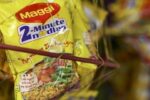Nestlé’s crisis in India
Nestlé has handled a product safety scare stunningly badly, appearing to have learnt little from its multinational experience over many decades Nestlé has found itself in hot water in India after the local food safety regulators said the company’s instant noodles contained unsafe levels of lead and traces of monosodium glutamate (MSG), contrary to the food’s labelling. Nestlé’s handling of the situation has created a new case study on how not to handle a crisis. First, let’s look at the potential and actual severity of the crisis and the damage. Maggi, Nestlé’s instant noodles brand, has been a household name in India for 30 years. According to market estimates, Maggi contributes more than 20% of the $1.5bn annual sales Nestle has in India. Maggi accounted for 60% of India’s noodle sales last year, according to a Euromonitor report. Maggi ranked among the top five most trusted brands last year in a survey-based ranking issued by India’s leading business newspaper the Economic Times. Nestle introduced instant noodles to India, where noodles were not previously part of the culinary culture and instant food was not common. An aggressive advertising campaign with a catchline of “two-minute noodles” proved so effective that Maggi became the breakfast of choice for parents struggling to get their children ready for school in the morning. The advertised idea of a delicious and nutritional meal that could be cooked in just two minutes appealed to millions. Maggi became a preferred snack for children, singletons and working couples. In more recent years, hundreds of thousands of Maggi stalls have opened across the country making it a popular street food. First signs of trouble ignored The first sign of trouble emerged on 30 April this year when the local food safety regulator in Lucknow, the capital of the most populous state […]







